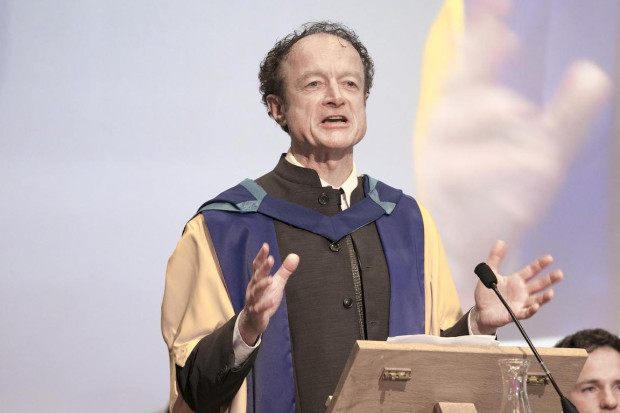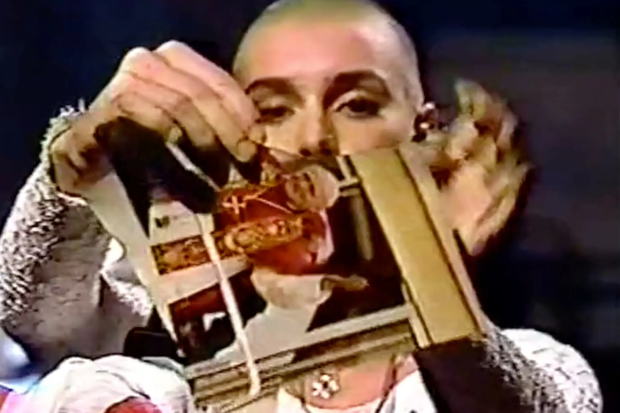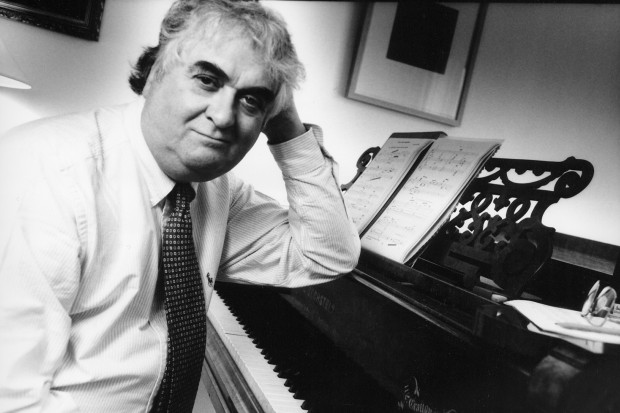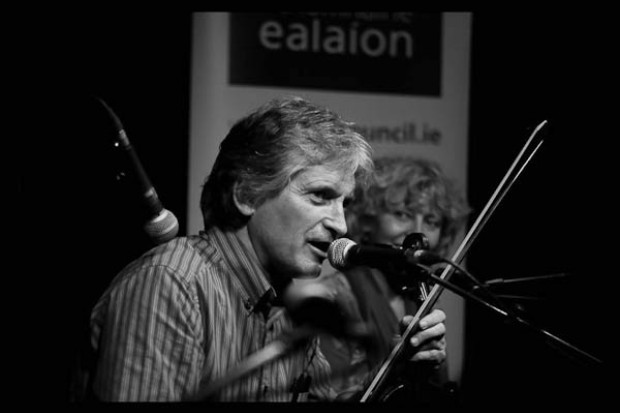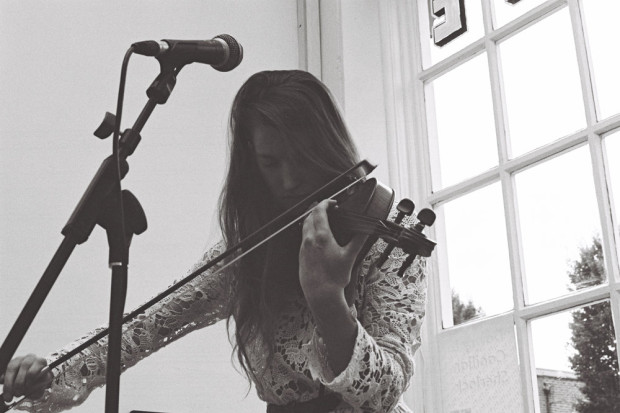Editorial: Irish Music magazine
Welcome to issue 2 of The Journal of Music in Ireland. I am pleased to report that the response to the first issue was very positive. We were delighted with the amount of e-mails and letters that we received as well as the generally strong reaction to the issue’s contents that they contained. I am sure this edition will garner a similar response and I look forward to more feedback.
At the risk of alienating readers who from time to time, for peace of mind, find themselves on the run from our ubiquitous and ebullient Irish traditional music, I want to mention an issue that has come up regularly in conversations with readers over the last two months, namely the contrast between the JMI and the traditional music magazine, Irish Music.
Few spheres of music from Ireland have received more commercial attention than traditional music, and I suspect that because of this traditional music is most in need of some critical intellectual input. It is one thing to be generally ignored by the public, as other Irish musics are, but it is another to be brutally ravaged by it. It seems that the latter in these manic times is a far worse fate.
Traditional music has little in the way of structures to protect its integrity. Contemporary and jazz music have admirable organisations such as the Contemporary Music Centre and the Improvised Music Company, both of which, I think, manage to coat their field with a basic no-fuss intelligence and a measured feel. There is no similar organisation for traditional music. The Irish Traditional Music Archive is a port in the commercial storm, but it can’t do everything. Traditional music has been left to the corporate dogs, its integrity essentially ransacked, its fragility steam rolled.
One of the many motivations behind the setting up of the JMI was to provide an opportunity for some rethinking of traditional music. If a rethinking of this music was the project of the folk revival, then its energy has now petered out, and most discussion concerning the music goes around in circles. Over the last couple of months, I have noted that traditional musicians have recognised the JMI’s effort in trying to combat this, and I was not surprised to hear from many of their disappointment with the Irish Music magazine’s performance in this regard. Irish Music is a full-colour, glossy magazine that has been in circulation since 1995. It was started by Ronan Nolan, but was taken over by Lacethorn Ltd, a Dublin-based publishing company, after a couple of years. Lacethorn also tried their hand at a magazine called Classical Ireland a year or so ago, but that seems to have now disappeared.
From my own experience, after a few years of buying Irish Music, always anticipating that the next issue might actually address a subject that I, as a fiddle player, felt was important, I finally gave up, and weaned myself off it a year ago. Yet, I cannot ignore it. And, yes, I know that I am meant to dismiss it and satisfy myself with the explanation that because it is ‘commercial’ it is not important, but I can’t help thinking that that would be naive. Any publication that projects itself in bold print on its front cover as ‘The Definitive Voice of Irish Music Worldwide’ is of concern to all of us. I had decided, therefore, to break the public silence surrounding this publication, and to raise the subject of this magazine’s quality in this edition of the JMI, but, as it turns out, I have been beaten to it.
In mid-December, I happened upon a debate that was taking place on an Irish traditional music internet discussion site called IRTRAD. It was started when (inevitably) someone who actually gives a damn about traditional music (Tom Munnelly) exploded, after hearing that Terry Moylan’s important book on revolutionary songs of the 1790s wasn’t going to receive any coverage from Irish Music (this was later denied by the editor, Sean Laffey). The most interesting part of all this is that Sean Laffey was also on the discussion list and put forward a defence of the editorial policy.
To several on the list, Munnelly’s criticism was presumed to be merely the misguided comments of an ‘intellectual’, someone who simply needed to be advised that in Irish Music he was getting his hopes up, because the only way a magazine dedicated to Irish Traditional music can survive is if it takes the approach taken by Lacethorn Ltd. In fact, it was interesting to note how many in the debate assumed that the only way to discuss, think, ponder and enjoy a public discussion on Irish traditional music is on the terms of commercial ventures, and that any attempt to break out from that was simply ‘unrealistic’. Indeed, Sean Laffey’s defence of the editorial policy suggested that all we can do in the ‘capitalist west’ is to make the best of a bad situation, which, as far as I can interpret it, means that we continue to think, talk, act and speak about Traditional music in accordance with the requirements laid down by market forces and modern-day fatalistic, consumerist thinking. Is it my imagination, or when we do that, haven’t we ceased talking about music? Aren’t we talking about nothing, and so will end up with nothing?
What is most problematic about Irish Music is that – despite assuming the status of one – it is not really a simple fanzine; for in order to be credible it must create an entire ‘world of Irish music’, therefore trampling upon our cultural space as musicians and Irish people, and making what we are, and do, a nonsense. Of course, Irish Music might argue that, on the contrary, it falls in on the side of the musicians, and, by ‘supporting’ the commercial exploits of traditional musicians, it is doing the music a favour. This is another vaguely tenable argument, but Irish Music actually leaves no breathing space for anything but the commercial world. All the profound or tragic aspects of this music and the Irish nation’s history are bleached and juggled about until they become un-profound, sellable concepts that fit in with whatever products the magazine’s advertisers are trying to promote. How it can be suggested that this form of music commentary is good for Irish music is beyond me. It is simply good for Irish Music and the very few who make a decent living from playing. Indeed, there were outrageous little hints in the internet debate that, while Irish Music was doing something practical and useful (creating trad-stars), the alternative was an ‘intellectual’ magazine (the JMI, for instance?l), which wasn’t practical, and wouldn’t do anything for the music. That particularly old chestnut is the stock of colonised Irish thinking; the idea that we Irish don’t need to do any of our own thinking, because London and Washington has already done it for us. All we need do is insert the imported thought, take the cash, keep our heads down and play our little hearts out, and don’t worry about any of the big’ intellectual’ issues – like the world, humanity, life, peace, even music! By the way, solely for research purposes I bought the Irish Music Christmas bumper issue, but, it having perplexed me once again, I am back fasting.
* * * * *
I first read ‘Surrendering without a Struggle’ by Michael D. Higgins while I was living in Scotland, at the time when the Scottish people were setting up their new parliament. I witnessed there how willing the Scottish were as a people to set about rethinking and reimagining their country given just half a chance. On one occasion, I picked up the Scotsman newspaper to find the Scottish composer, James MacMillan, on the front page. He wasn’t receiving an award, however, nor premiering a new piece of music. In fact, he had made the front pages and the national news because, in a public lecture, he criticised his country for being anti-Catholic and said there was still an undercurrent of racism evident that he hoped would be challenged in the new Scotland. That evening, the subject was taken up by the current affairs programmes on television and radio, and the issue also cropped up in weekend papers. It was not what he said that surprised me (various books on Northern Ireland affairs that we picked up from our local library in Stirling were covered with anti-Catholic comments), it was the fact that a composer could be taken so seriously in a time of overbearing political debate. It could be explained away as indicative of James Macmillan’s standing, not only in Scotland, but worldwide, but Ireland has huge cultural figures like that who don’t provoke a row that would have such repercussions. Even the most favoured cultural icon and doyen of the media would have a problem making the front pages when they started tampering with such messy issues, yet Scotland was showing at this time how willing it was to embrace all aspects of its culture in a time of such of flux.
There was also much talk about the Republic of Ireland in Scotland at that time. On our television we followed the tension of the Northern Ireland Peace Process and caught tales of the glorious boom down the south. Indeed, many in the Scottish nationalist movement held Ireland up as an example of success to any colonised minds who thought that Scotland could never manage things without London’s blessing. I was growing aware, however, that the Republic of Ireland was far from a model country of independence, and, in fact, many would debate whether we have any vital independence at all.
The contest for a country’s cultural and intellectual independence inevitably involves music, musicians and composers. Musicians and composers who do not at least contemplate this fact will probably end up contributing to a nation’s cultural dependence.
That is just one thing that I learned from reading Michael D. Higgins’ essay. If music’s moral inertia, its genius and inspiration, is not manifesting itself in society, and among the mentality of those involved in political change, then it must be suggested that the responsibility for that lies with those involved in music, and that blame does not simply lie with a non-listening public.
–
First published in JMI: The Journal of Music in Ireland, Vol. 1 No. 2 (Jan–Feb 2001), pp. 3 – 4.
Published on 1 January 2001
Toner Quinn is Editor of the Journal of Music. His new book, What Ireland Can Teach the World About Music, is available here. Toner will be giving a lecture exploring some of the ideas in the book on Saturday 11 May 2024 at 3pm at Farmleigh House in Dublin. For booking, visit https://bit.ly/3x2yCL8.












